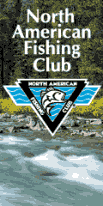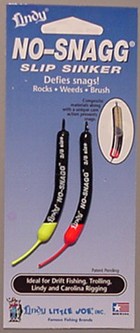













Promotional
Team Favorites
Lodging food and more








|
Hot Times on Reservoirs
By Sam Anderson
When the wind blows on the Great Lakes or Oahe and Sakakawea, the waves
pounding ashore loosen the soil and form a mud line. Walleyes like
to
use this mud line as an umbrella allowing them to feed in water as
shallow as two or three feet deep. On calm days, however, they prefer
rock or shale on a sharp breaking, extended point. On some days you
may
find the fish holding just below the first lip of a drop off. Some
days
they are deeper. Thus, stair step drop offs add to the attractiveness
of
a point, and on different days you may find fish on any ledge down
into
50 or more feet of water. The point is, walleyes often prefer structural
elements that allow them the most options possible regardless of the
weather. These are high percentage spots.
Any short, hard bottom point may hold walleyes on a given day. But
reservoirs like Oahe and Sakakawea and even the Great Lakes have
hundreds of short, hard bottom points. You are better off passing up
the
short points and stopping when you find a long point with several kinds
of fish attracting features. A good point might have a stair step ledge
on one side, scattered rock on top and a shale bed lining the other
side. The point's shallow inside turn may be soft bottomed, while the
deeper outside turn might break off into another smaller, hard bottom
point. Such an area is almost certain to hold walleyes.
The same principle applies to sunken islands, many points, stair step
ledges, and a variety of bottom conditions are generally better than
a
smooth, gradually breaking sand hump. I might also mention that an
already good island is made all the better by the presence of a saddle.
This saddle is a dip between two higher spots of land. If the saddle
is
connected to a prospective point all the better.
Don't forget to check out some other productive areas such as roadbeds,
riprap, creek channels, stump fields, or isolated rock piles, bars
and
rockslides.
The presentation of choice is a spinner. The spinner rigs we're talking
about are the live-bait rigs with a blade and a few beads just above
the
hook. As the rig is pulled through the water, the blade turns, which
attracts fish with both sound and added visibility.
A spinner is a rotating blade on a clevis, sandwiched among plastic
beads, followed by a hook or hooks and livebait. Today's standard
spinner rig consists of a metal clevis with a #1, #2 or #3 Colorado,
Indiana or willow leaf blade followed by 4 or 5 BB-sized beads and
a
single 1/0 Aberdeen hook for minnows or two #4 short shank snell hooks
rigged in tandem about two inches apart for crawlers or leeches. This
standard rig is tied on 36 inches of 14 to 17 pound test line.
When using spinners, snell length is important. The snell length is
the
distance from the swivel to the hook. Therefore instead of the standard
36 inch rig I will rather use a 48" or 4' leader. Most walleyes in
a
reservoir are not hugging bottom but might be suspended off the bottom
a
foot or two. With the additional snell length it allows them to see
the
offering a little longer and move to the bait.
Color can be very important. My five favorite colors for fishing
reservoirs are fluorescent orange or red, chartreuse, green, nickel
and
gold. Expect to find definite preferences on certain reservoirs.
However, don't get hung up on one specific color. Keep switching colors
until someone finds the hot color of that particular day.
Blade size can also be an important consideration. Many of my biggest
fish have come on a #4 blade, which is slightly larger than the standard
#3 blade found on most commercially tied spinners.
While many fishermen prefer Indiana or Colorado blades, some also like
the willow leaf design. The Colorado blade seems to spin at slower
speeds than the others and big blades spin easier than small ones.
On
those rare days when the fish are finicky and a slower trolling speed
is
necessary, you are better off going with a # 4 Colorado blade to get
blade rotation at reduced speed.
 |
For weight, use bottom bouncers or snap weights. I prefer to use the
Lindy No-Snagg it is a banana shaped sinker that has balsa, lead
antimony weight that is surrounded by epoxy paint and a protective clear
seal coating, with a special rubberized coating on the outside. The
sinker also has a stainless steel wire feeler out of the bottom that is
tipped with a colored bead. This has the super principles of the 3-way
and the bottom ticking ability of the bottom bouncer. Also, the No-Snagg,
when it hits an obstruction simply pivots away from the snag
and doesn't get hung up.. This pause surge pause method of presentation
has captured a lot of walleyes in reservoirs. |
Spinning gear is certainly adequate, but bait casting gear filled with
12 to 17 lb. monofilament line is perfect. The baitcaster gives you
more
flexibility for forward spinner trolling than spinning gear does. Leave
the free spool button depressed and place your thumb on the line. If
you
snag up at a fast trolling speed, you can easily give line. Set the
drag
loosely and pump the fish to the boat, using you thumb to maintain
constant pressure. Walleyes are tenacious fighters, and a big fish
will
make several quick runs at the boat. So, you must be able to give line
in a hurry. When nature calls for a faster reel for working plastics,
the Quantum E650PT comes in handy. The E640PT can be used, but you
would have to crank fast to get it at the right speeds. It's best when
you can
retrieve at a constant speed you're comfortable with. The 5.1:1 gear
ratio in the E650PT allows you to work a swimming grub, soft plastic
jerkbaits, and spinners where you want to swim or get those blades
moving. The speed of the Quantum Energy PT E650PT fits this technique
well.
Team this up with a Quantum Hookhider IM6 Gold Series (109C) and Quantum
PTC666F These longer rods allow me to use my rod holders and give me the
sweeping hooksets needed to get those reservoir walleyes on the line.This
summer don't waste time on the neighboring lake, hook up the boat
and get out to one of the Great Lakes of a neighboring reservoir. The
reservoirs are vast and the walleyes are waiting. Let me know how you
are doing by dropping me a line at www.samanderson.com.

Fish
Clix Banner Exchange
Walleyes Inc. website is maintained
by Randy
Tyler Fishing the In-Fisherman Professional Walleye Circuit, Masters
Walleye Circuit and the Wal Mart RCL Circuit. All rights reserved.Copyright
1999/2003
Please visit these site sponsors
Daiichi/Tru-Turn Hooks,
Lindy
Little Joe,
R-A.M Mounting Systems,
Ranger
boats, Mercury Outboards,Bedford
Sales , Church Tackle, Panther
Marine Products,
Webfoots body sock,
Bait
Rigs Tackle ,Dual Pro Charging Systems,
Daiwa
Rods and Reels,
Driftcontrol
Wind socks,
Trojan Batteries
|


